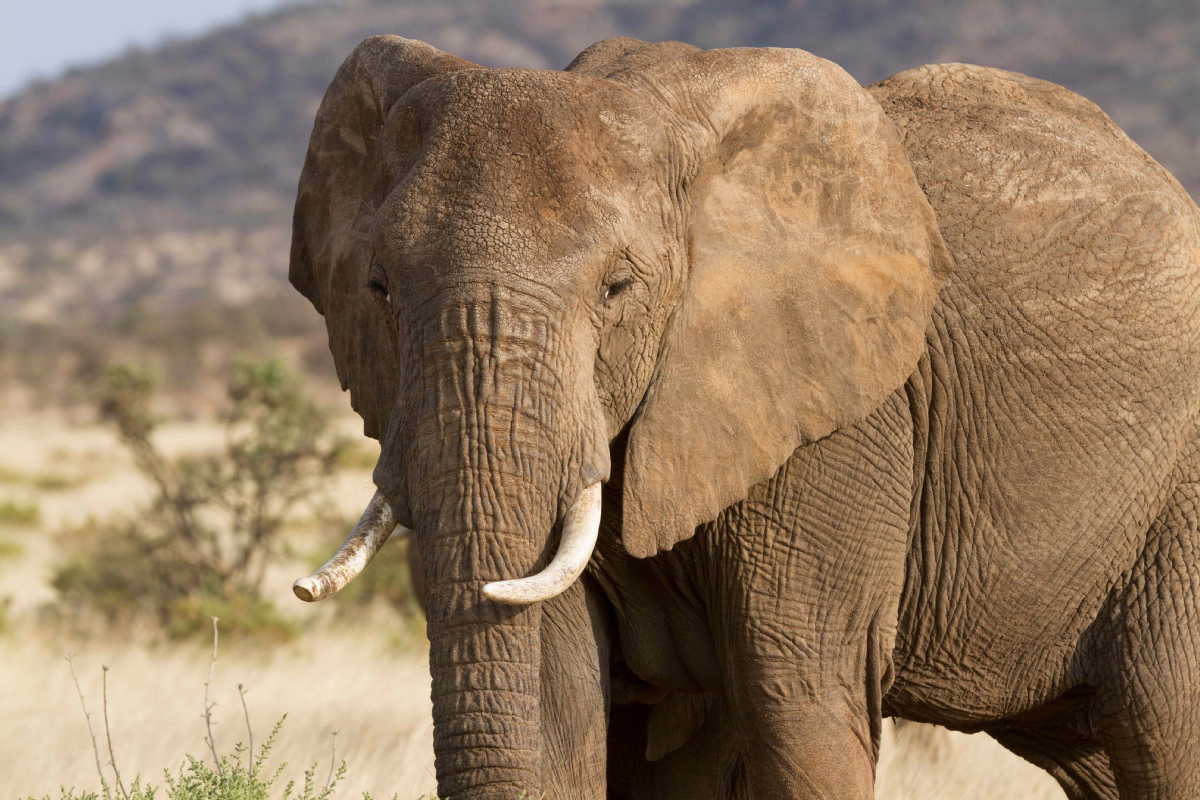Tuskless elephants a reminder of human's unchecked intervention in natural evolution


A recent study says rampant poaching in Mozambique has driven more female elephants to be born tuskless to survive.
According to the study published on the Science journal, elephant populations in the Gorongosa National Park in Mozambique declined by 90 percent during the country's civil war (1977-1992) as a result of heavy poaching by armies from both sides of the conflict.
The study shows the sharp decline of the elephant population in Gorongosa was accompanied by a nearly threefold increase in the frequency of tuskless females, from 18.5 percent to 50.9 percent. It also finds about two-thirds of the offspring of the tuskless mothers were daughters.
Female elephants use tusks as tools to defend themselves and their babies. However, rampant poaching forced the elephants to "disarm" themselves, and changed their course of evolution.
Usually, the evolution driven by natural selection takes millions of years or longer, but human activity accelerated the process, making it occur in a matter of a few decades.
Humans should not have the illusion of being "the Creator"; rather, the rising number of tuskless elephants indicates that human activity poses huge threats to other species.
Actually, it is nothing new for humans to alter other species.
Humans have a long history of domesticating wild animals, either for meat or for companion. Nevertheless, the tuskless elephants deserve some serious soul-searching. It reflects the malfunction in governance of human societies, and our inability to crack down on crimes against wildlife.
Illegal ivory trade, which is culpable for pushing elephants to pass the gene of tusklessness to their offspring, should be banned completely.
In fact, human's unchecked power of changing the planet is not limited to other living beings. Another evidence is climate change. Since the Industrial Revolution, the global atmosphere has been warming at a rate unprecedented in the past 2,000 years.
From floods and sandstorms to heat waves and deadly wildfires, the impacts of extreme weather events are affecting our daily lives in an increasingly extensive and serious way.
Due to human activity, the lengthy process of natural evolution has been compressed into as brief as one generation. The accelerated evolution means our past experiences no longer apply to new situations, which may lead to unexpected, and in some cases unbearable, consequences.
- Luxury brands drop ads featuring S. Korean actress after she insults China
- Jiangmen activates Chikungunya fever L3 emergency response
- Ride like locals: Expats embrace Shanghai's bike-friendly vibe
- China unveils rules for 11th round of natl centralized drug procurement
- Artist, Arc'teryx apologize for fireworks display controversy
- Yellow River maintains good water quality for 3 consecutive years




































